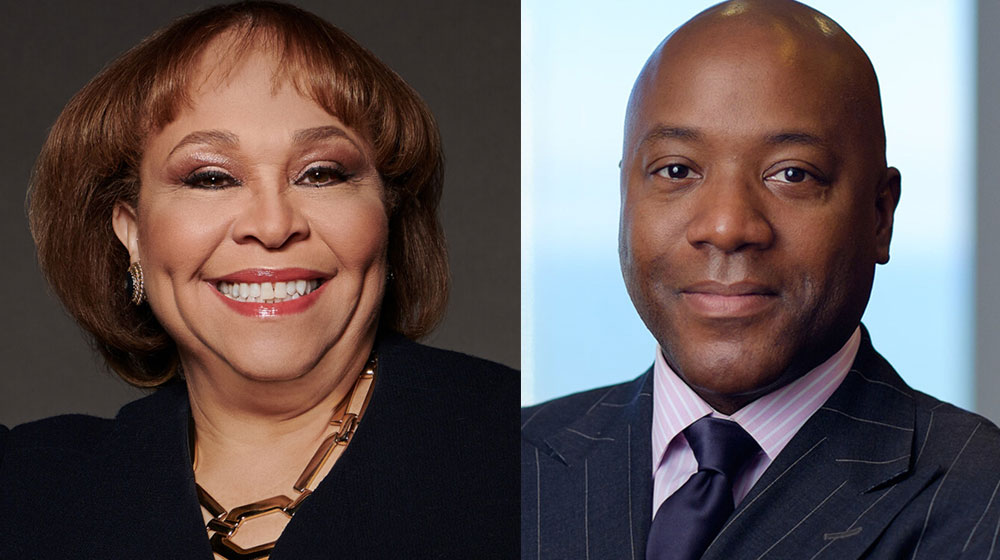DEI must be owned by the entire company

Connie Lindsey and Lyndon Taylor join the first session of the DEI Leadership Institute.
By Natalie Angarita, Student Report, Baumhart News
On September 17, 2020, the Baumhart Center hosted its first session of the DEI Leadership Institute, a first-of-its-kind experience that engages cross-functional leaders in exploring how DEI can enhance each business function—from human resources to supply chain to executive governance.
The first session featured Power Chats with Lyndon Taylor, Partner-in-Charge at Heidrick & Struggles, and Connie Lindsey, EVP and Head of Corporate Social Responsibility and Global Diversity and Inclusion at Northern Trust.
Taylor and Lindsey each opened by sharing their journey into diversity, equity, and inclusion. They powerfully described the meaningful changes they have seen by corporations, and the challenges the private sector still faces in advancing equity in our workplaces. Both speakers emphasized four keys to moving the needle: clear strategy, a system of measuring progress, executive buy in, and the right organizational structure to drive change.
Taylor shared that he is encouraged by the positive momentum for DEI in recent months. When describing how to create a more diverse workplace, Taylor said the first step is to define what diversity means for the company and then effectively communicate why it is essential to the business strategy. “When you do that, it’s not an initiative. It is linked to the overall support of the business. (The strategy) requires measuring what you’re doing. When you say diversity is actually important to my business, then you should actually be measuring the results over time.”
Taylor also emphasized the role of leaders in modeling inclusion. Reflecting on his role, he shared that the culture of the Chicago office of Heidrick & Struggles is shaped by his individual culture. “I have to, as a leader, model inclusive behaviors. I have to be intentional about being an inclusive leader who’s capable of building diverse teams.”
Building on similar themes, Lindsey’s remarks focused on how important it is to have DEI embedded into an organization. “HR is crucial to the conversation, but advancing DEI cannot be done unless it is owned by the business.”
Describing a “new phase of corporate social responsibility,” Lindsey said companies need to reflect on the role of business in society if they want to inspire and retain top talent. “What we see now is a social application where individuals actually do require companies, in many cases, to have a transformational purpose, and that’s where we see the companies that young people want to work for.”
